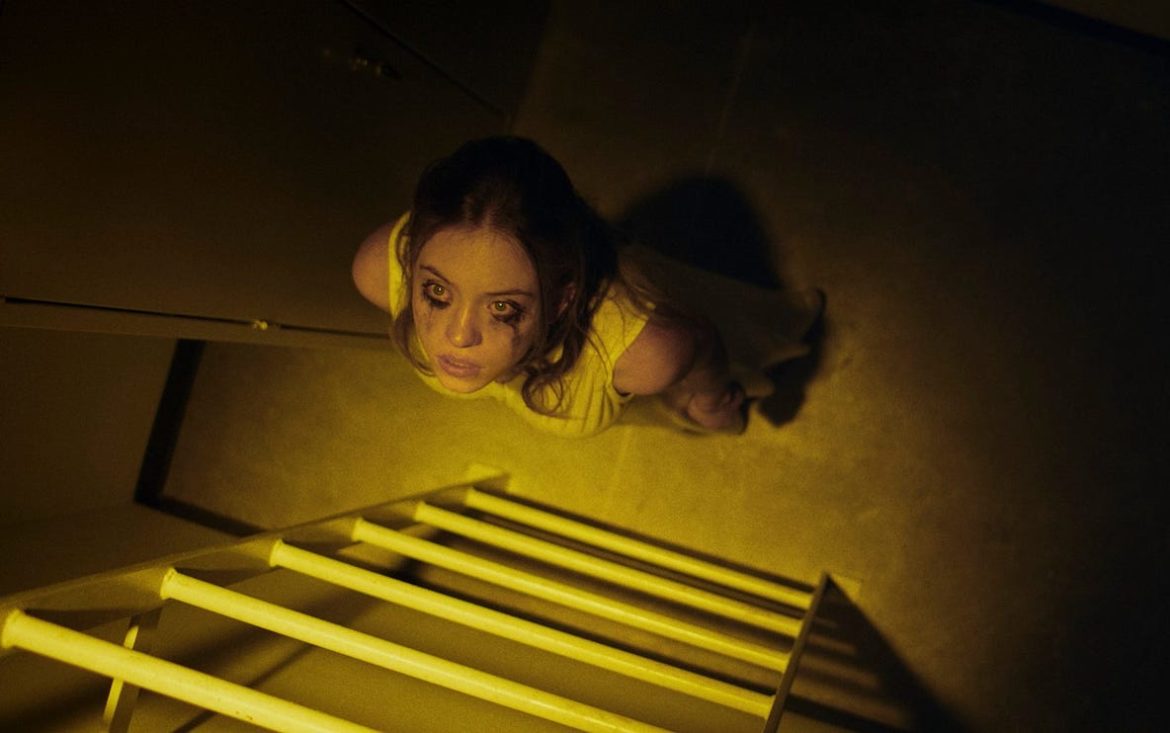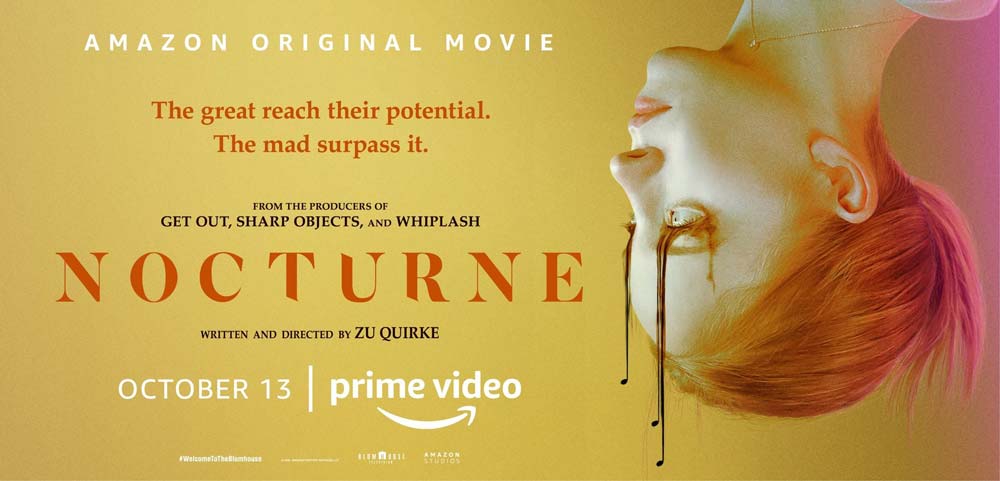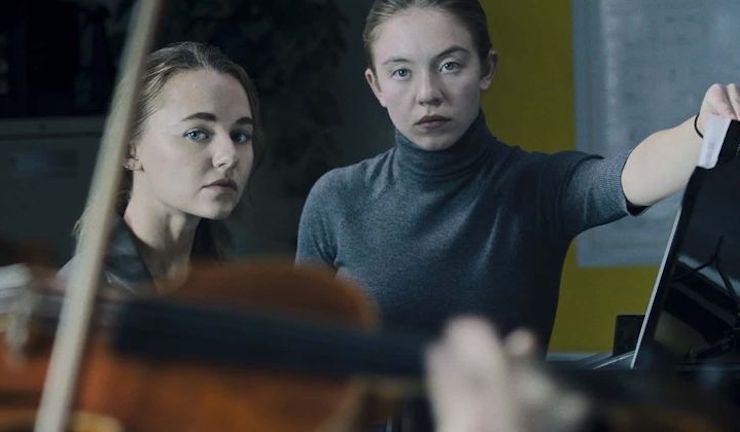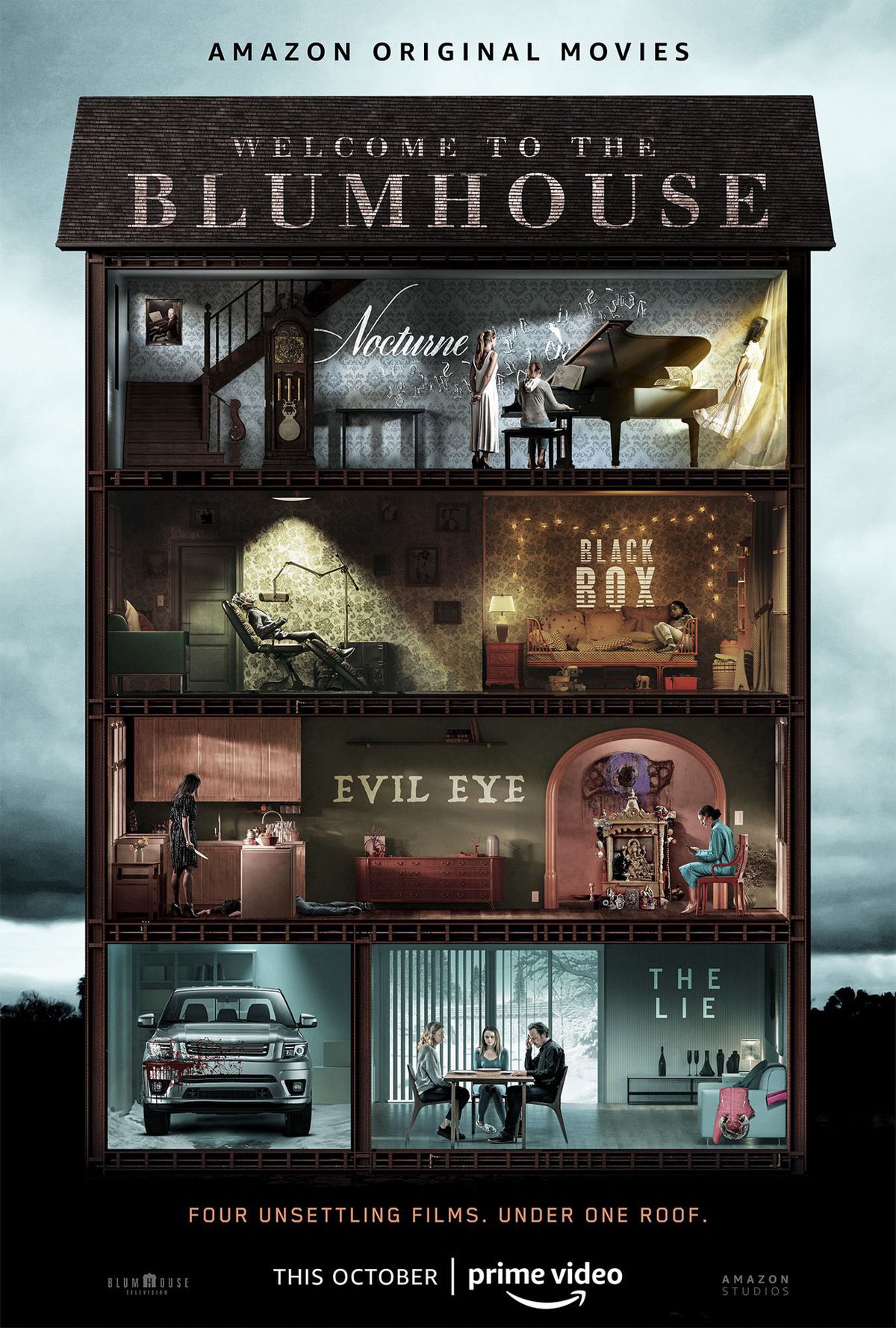Released today on Amazon Prime Video, supernatural thriller Nocturne is an unsettling tale of sibling rivalry set at a prestigious arts academy.
Produced by Blumhouse, it is one of eight titles being released in 2020/2021 as part of ‘Welcome to the Blumhouse’, an anthology of unique and unsettling thrillers showcasing diverse casts led by emerging filmmakers, including several female directors.
With its focus on two piano students, Nocturne relies heavily on classical music, both in the source cues and the on-screen performances, which presented multiple challenges for music supervisor Ryan Neill.
We recently caught up with Neill, who also serves as VP of Music Production at Spirit Music Collective, to learn more about the project and its unique musical requirements…
Supernatural thriller Nocturne is set inside the halls of an elite arts academy. What was it like working on such a music-filled project?
It was certainly an exciting film to work on and there were plenty of challenges. Typically, with a film you’ll be dealing with licensing songs and source cues, but with Nocturne, the live performances and all the environments brought additional needs for music. When I received the script from Blumhouse and started making my notes I was like, oh, there’s music happening on page one. By the time I got to page twenty I was like, oh my gosh, I’m going to need more Post-it Notes!
Were you working on the film during lockdown?
Fortunately we were well into post production at the beginning of 2020, but this was one of the first films to be mixed with everyone in quarantine. I would be given a private link to review the film and we would all make our notes just as if we were all sitting in a room together. You have the mixer, the director, the producers, the music editor – we were all at home making notes, which probably made the process a little longer than usual, but we got it done.
How do you get started on a project like this? What are the unique challenges associated with licensing classical music?
It all starts with the director’s vision. With Nocturne we had the British writer-director Zu Quirke who I can’t speak highly enough of, she has such an amazing positive energy about her. Zu is a violinist who grew up playing in music conservatories in England, and so she’s very well connected to the world in the film and she knows her classical music and film scores. She knew which pieces of music she wanted to use in the various piano concerto competitions, and so as the music supervisor my job was to deliver that.
In classical music, often you’re dealing with pieces of music in the public domain. You need to be 100% sure that these pieces really are public domain, and so often we work alongside a musicologist who will conduct the necessary research. There was one piece of music, “Piano Quintet in G minor” by the Mexican composer Enrique Granados, that Zu wanted to use but unfortunately we had to find something else as it isn’t in the public domain.
“A useful rule of thumb is that if the composer passed away before 1932, and if he’s not a composer from France, then it’s probably public domain.”
A useful rule of thumb is that if the composer passed away before 1932, and if he’s not a composer from France (because French copyright law can get tricky), then it’s probably public domain. That rule has served me well throughout my career, so when this piece came up I thought, the composer died in 1917, he’s not French, so we’re probably good. But the musicologist discovered that it had not been copyrighted until 1971. In dealing with TV and film and with anything, you have to be absolutely sure that you’re covered and you have the proper license. Sometimes, as the music supervisor, you have to be the bearer of bad news.
Were there any challenges associated with the on-screen performances?
We brought in a piano coach to teach our two stars, Sydney Sweeney and Madison Iseman, how to look and feel like they were performing the piano. I was there on set for a couple of days when they were filming the big performance scenes and I thought they were brilliant – their body movement, their facial expressions. I was blown away. They came across as being fabulous pianists.
The dark, electronic score provides such an effective contrast to the classical music in the film. Who is the composer?
Zu Quirke had the brilliant idea of bringing British electronic music composer, producer and musician Elizabeth Bernholz, better known by her stage name Gazelle Twin, as the composer of the film. The score needed to emphasize and support the tension throughout the story, and going with an aggressive electronic score, which is really the opposite of classical music, was really effective. We used two existing songs by Gazelle Twin, “Unflesh” and “Belly of the Beast”, in the film as well.
What other sources did you go to for music in the film?
We licensed a lot of music from Spirit Production Music, which is a great resource because there’s so much variety to pick and choose from. We used some classical pieces in a few scenes and then we needed a solution for the hallways of the arts academy. When you walk down the hallway of any music school there’s this real cacophony of sound from students practicing their instruments. So we licensed a lot of solo instruments from Spirit Production Music, whether it was a Paganini violin work, a solo trombone playing “Ride of the Valkyries”, or a solo drum track playing a jazz riff. We combined it and gave it to the mixer who EQ’d it so it sounds like it’s coming from behind the walls at softer volumes. I thought that was really cool.
Blumhouse is known for micro-budget horror movies. Was the budget a challenge on this project?
I think that every project has a challenge when it comes to the budget. Whether it’s $10,000, $50,000 or $150,000, that’s kind of the starting point and that dictates what you can do. The lower the budget, the greater the challenge, because we still need to deliver, we still need to bring quality and fulfill the vision of the director. I was able to license music from Spirit Production Music and tap into industry resources that met the creative needs of the story and vision of our director, Zu Quirke.
“The lower the budget, the greater the challenge, because we still need to deliver, we still need to bring quality and fulfill the vision of the director.”
For Nocturne, it was critical that we were true to the story and true to the music. If the Arts Academy is the best of the best, then the music needs to be the best as well. The performances had to be fabulous because these are the next crop of students attending top performing music schools, such as Julliard. I think the other thing that comes across in the film is the level of dedication and sacrifice it takes to be a world-class musician. I love how Professor Kask says in the trailer, “Music is a blood sport.” And then there’s the dynamics and tension between the two sisters and the family, and when you add in the element of competition and sacrifice it’s quite powerful.
What is your personal favourite use of music in the film?
Well, the piano concertos are obviously great, because they’re such a big part of the story and the performances are so fabulous. But really my favorite part was recreating the environment of the music school. I went to music college and was a performance major myself, so I know what those hallways sound like and I’m really proud of how we recreated that by licensing various solo performances and mixing them together. It sounds like a real music academy. For the most part, all of that will go unnoticed, but I think that’s the magic of using music and using it properly, when it goes unnoticed. That’s when music is working.
“My favourite part was recreating the environment of the music school. I went to music college so I know what those hallways sound like and I’m really proud of how we recreated that by licensing various solo performances.”
Can you tell us about any upcoming projects?
Blumhouse is producing a total of eight films for Amazon Prime Video. The first four, including Nocturne (October 13), are being released this month, and the next four are coming out in 2021. I’m actually working on another one of those projects that is just heading into post production. And then I have a few TV shows that are going on.



